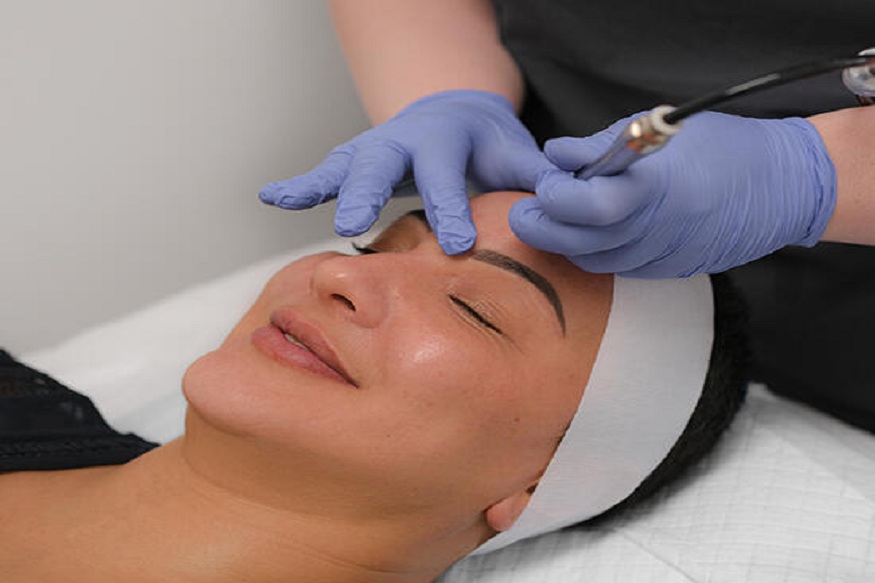Who doesn’t dream of smooth, even-toned skin? But let’s be honest—our skin doesn’t always cooperate. Factors like sun exposure, acne scars, and even genetics can lead to uneven skin tone, dark spots, or dullness. And while this is totally normal, that doesn’t mean you have to settle for it. With the right skincare habits and a little consistency, you can bring back your skin’s natural glow and achieve a more balanced complexion.
Here are five simple tips to help you get there. Keep reading to find out how!
1. Focus on Sun Protection
If there’s one skincare rule you should never ignore, it’s sun protection. UV rays are a leading cause of dark spots, hyperpigmentation, and uneven skin tone. No matter the weather, apply a broad-spectrum SPF 30 (or higher) every morning and reapply throughout the day, especially when spending time outdoors.
While sunscreen helps protect your skin from future damage, fading existing dark spots requires a little extra help. That’s where retinol enters. This vitamin A derivative boosts collagen production and speeds up cell turnover, helping to even out your skin and reverse some of the sun damage.
A beginner-friendly option you can try is Olay Regenerist Retinol24 Night Serum. It combines retinyl propionate (a gentle, stable form of retinol) with niacinamide to reduce fine lines and wrinkles, brighten the complexion, fade dark spots, and smooth skin texture. Its deep-penetrating formula works through 10 layers of skin, giving you that radiant, youthful glow. Plus, it’s fragrance-free and dye-free, making it a great choice for all skin types.
While Olay’s Night Serum doesn’t directly target uneven skin tone, it helps with concerns like dullness, dark spots, and rough texture, which can gradually improve the overall look of your complexion.
If you want to start using retinol for uneven skin tone, start slow. Use it once or twice a week, apply a pea-sized amount, and avoid pairing it with harsh exfoliants. And, of course, it’s always a good idea to check with your dermatologist.
Also Read:Why Retinol Serum is a must-have in your Skincare Routine
2. Add Brightening Ingredients
Your skincare routine should work for you, and that means including ingredients that actively fade discoloration and improve skin tone.
- Vitamin C helps reduce dark spots and boosts your skin’s radiance.
- Niacinamide evens out skin tone and improves texture.
- Alpha arbutin and kojic acid target stubborn dark spots.
Just be consistent—these ingredients take time to show results, but they’re worth the wait!
3. Exfoliate Regularly (But Gently!)
A buildup of dead skin cells can make your complexion look dull and uneven. Exfoliating helps remove that layer, revealing fresh, radiant skin underneath. But be careful—over-exfoliating or harsh scrubs can do more harm than good. Instead, opt for gentle chemical exfoliants like glycolic acid or salicylic acid a few times a week. These help fade dark spots and smooth the skin without irritation.
4. Hydrate and Nourish Your Skin
Keeping your skin hydrated helps it heal faster and appear more even. Dry, dehydrated skin can make dark spots more noticeable and cause a patchy complexion. When choosing moisturizers or serums for uneven skin tone, look for ingredients like hyaluronic acid and ceramides to lock in moisture and keep your skin balanced. And don’t forget to drink plenty of water for a healthy, glowing look.
5. Support Your Skin with a Healthy Lifestyle
Using skincare products for uneven skin tone is helpful, but what you put in your body matters too.
- Eat a nutrient-rich diet with fruits, vegetables, and omega-3s (like flaxseeds and kidney beans).
- Cut back on sugar and processed foods, which can trigger inflammation and worsen dark spots.
- Get enough sleep to let your skin repair itself overnight.
- Manage stress, since high stress levels can lead to breakouts and uneven skin tone.
Wrapping It Up
Uneven skin tone is a common concern, but with the right care, you can see real improvement. Protect your skin from the sun, use effective ingredients, exfoliate gently, and keep it hydrated. Combine these steps with a healthy lifestyle, and you’ll notice a difference.
Be patient and consistent—dark spots take time to fade, and your skin needs regular care to improve. Stick to your routine, treat your skin gently, and stay motivated. Small daily habits add up, and before you know it, your skin will look smoother, brighter, and more even.



